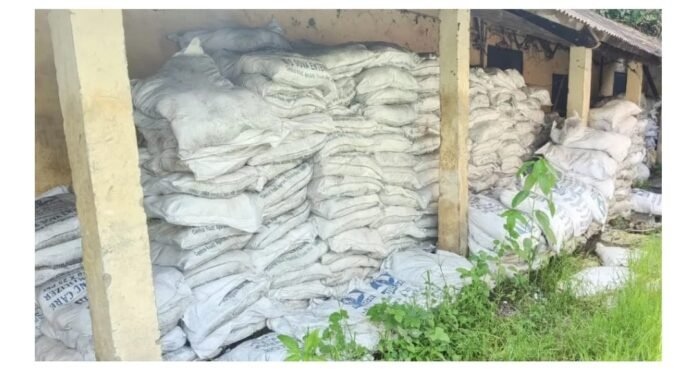Introduction:
The farming community in Dibrugarh, Assam, is currently grappling with a dire situation as a shortage of essential agricultural supplies, including pesticides, bio-fertilizers, and other chemicals, has left them in distress. The unavailability of these vital inputs poses a significant threat to the region’s agricultural productivity and the livelihoods of countless farmers. Immediate action is needed to address this pressing issue and provide support to those affected.
Shortage Impacts Farming Community:
With the shortage of pesticides, bio-fertilizers, and other chemicals, farmers in Dibrugarh are facing numerous challenges in sustaining their agricultural activities. These crucial inputs play a crucial role in enhancing crop yields, controlling pests and diseases, and maintaining soil fertility. However, the limited availability of such supplies has resulted in reduced productivity, increased vulnerability to crop damage, and decreased overall agricultural output.
Consequences for Agricultural Productivity:
The scarcity of pesticides and bio-fertilizers has left farmers in a state of distress. Without effective pest control measures, crops become susceptible to infestations and diseases, leading to substantial yield losses. Additionally, the absence of essential nutrients supplied by bio-fertilizers negatively impacts soil health and reduces the potential for sustainable farming practices. As a result, farmers are struggling to maintain their livelihoods and meet the growing demands for agricultural produce.
Need for Immediate Support:
Recognizing the urgency of the situation, it is imperative that relevant authorities, government agencies, and agricultural institutions step in to provide immediate assistance to the affected farmers. Efforts should focus on ensuring the availability of pesticides, bio-fertilizers, and other necessary agricultural supplies. This could involve expediting the procurement and distribution process, establishing accessible distribution centers, and exploring alternative sources to bridge the gap in supply.
Collaborative Efforts for Solutions:
Addressing this crisis requires a collaborative approach involving farmers, agricultural cooperatives, local authorities, and relevant stakeholders. Cooperative societies and farmer associations can play a vital role in coordinating efforts and communicating the needs of farmers to the concerned authorities. In turn, the government and agricultural institutions can work together to streamline the supply chain, support local manufacturing of agricultural inputs, and implement long-term strategies to prevent such shortages in the future.
Promoting Sustainable Practices:
Amid this distressing situation, it is essential to emphasize the adoption of sustainable farming practices that reduce reliance on chemical inputs. Encouraging organic farming methods, promoting the use of natural pest control mechanisms, and educating farmers on efficient nutrient management can help mitigate the impact of supply shortages. Investing in research and development of resilient crop varieties and promoting integrated pest management strategies can also enhance agricultural resilience in the region.
Conclusion:
The distress faced by farmers in Dibrugarh, Assam, due to the shortage of pesticides, bio-fertilizers, and other agricultural chemicals requires immediate attention and support. Timely action from authorities, combined with collaborative efforts, can help alleviate the crisis and provide the necessary assistance to the farming community. By ensuring the availability of essential agricultural supplies and promoting sustainable farming practices, we can safeguard the livelihoods of farmers and strengthen the agricultural sector in the region.



